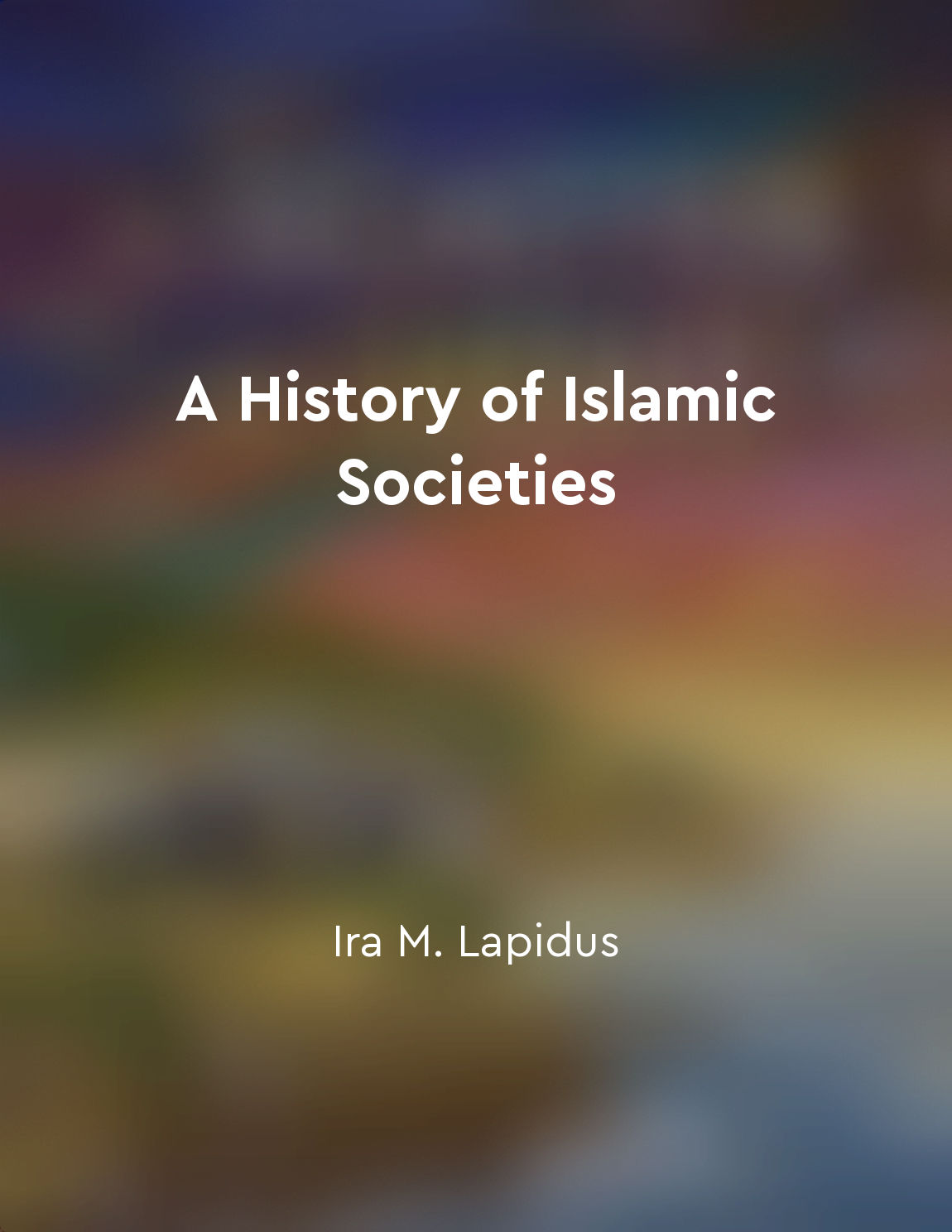Islamic societies developed sophisticated systems of governance from "summary" of A History of Islamic Societies by Ira M. Lapidus
Islamic societies in the medieval period developed complex systems of governance that were highly sophisticated for their time. These systems were based on a combination of Islamic law, administrative practices, and cultural traditions that allowed for the effective management of diverse populations and territories. One key feature of these governance systems was the concept of the caliphate, which served as both a religious and political institution that provided leadership and guidance to the Muslim community. The caliphate was responsible for upholding Islamic law and ensuring the welfare of the people under its rule. This involved overseeing various aspects of governance, such as taxation, justice, and public works, as well as maintaining social order and security. The caliphate also played a crucial role in promoting trade and commerce, which helped to stimulate economic growth and cultural exchange within Islamic societies. In addition to the caliphate, Islamic societ...Similar Posts
Miracles of the Prophet
The miracles of the Prophet are a testament to his divine mission and serve as a proof of his prophethood. These miracles were ...
Humility and simplicity
The concept of humility and simplicity is a central theme in the teachings of the Prophet Muhammad. Throughout his life, he exe...

